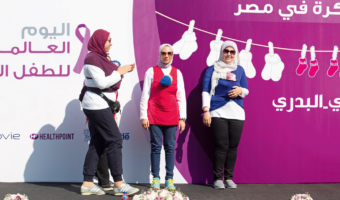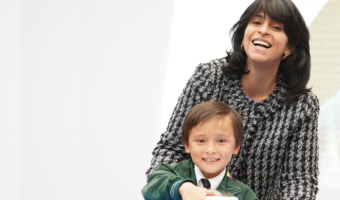The medical consensus is that Covid-19 poses few direct risks to children and adolescents – with some exceptions, such as children who have specific comorbidities and, perhaps, babies in their first year. But the indirect effects on children – due to the social and economic crisis that has resulted from the pandemic – are multiple and severe, and they have been mostly overlooked.
The Alliance for Child Protection in Humanitarian Action, a global inter- institutional group supported by UNICEF, has published an important brief on the protection of children during the coronavirus pandemic. It warns about harm to the environment in which children are growing up, through serious disruptions to family dynamics and daily routines. In more serious cases, these disruptions have provoked family separation, violence, mistreatment, educational problems, forced labour, and exclusion.
The economic effects of the pandemic are already visible around the world, and the outlook for the future is worrisome. In the case of Latin America and the Caribbean, there are predictions of a severe contraction: both the International Monetary Fund and the Economic Commission for Latin America and the Caribbean project a decrease in regional GDP of more than 5%. These projections also envisage a massive rise in the unemployment rate, increasing the number of people in poverty in the region from 185 million to 220 million.
This will undoubtedly have significant political and institutional effects, such as growing dissatisfaction with democracy potentially triggering political violence. We must also consider the likely effects of the economic crisis on child mortality, malnourishment, teen pregnancies, and learning quality – with the risk of deepening the region’s pre-existing educational crisis.
The closing of schools and childcare services increases stress on all families, especially single-parent households and those headed by women. The lockdowns have exacerbated the impacts of unequal pressure on women and girls to do care work. It is also worth remembering that half of the doctors and 80% of nurses are women in the Latin American and Caribbean region – the highest percentage in the world, according to the Inter-American Development Bank.
An increase in intra-family violence is a particularly worrying effect of the confinement due to the pandemic, as it is undoing recent progress in this field. Lockdowns have isolated many women at home, breaking their family support networks, friendships and links to civil society and the State. This has left them and their children more vulnerable to abuse, neglect, violence, exploitation, and stress (United Nations, 2020).
Not all countries in the region have considered support and care for women and children as essential services. For women and children experiencing physical and mental abuse, the lack of priority given to these services has added to their emotional suffering.
Children look to adults in their lives in order to find an example of how to behave when faced with new, complex and challenging situations. Already six out of ten children in the Americas are raised with violent methods that include corporal punishment and psychological aggression, according to the Inter-American Commission on Human Rights (2020). A generation of young Latin Americans may now grow up with additional psychological and emotional trauma due to their experiences during the pandemic.
In addition to these general challenges, specific groups of children have faced particular risks during the pandemic. For example, malnourished children have been deprived of the food they used to receive at school. Migrant children, and those living in dangerous social environments where organised crime is constantly present, have often been expected to continue to work and support their families.
Survey on policy responses
‘Lockdowns have isolated many women at home, breaking their family support networks, friendships and links to civil society and the State.’
In response to the pandemic, I joined more than 60 leaders from 17 countries in Latin America and the Caribbean to create the Convergencia para la Acción, Red de Líderes por un Comienzo con Futuro, (Convergence for Action: Network of Leaders to Begin the Future) initiative. Between April 20 and May 1, this initiative conducted a pioneering survey1 on early childhood development policy responses to Covid-19. It collated evidence on measures including:
- policies to ensure children’s food security, especially for families without access to social protection
- strategies for maintaining educational programmes via the internet or television, bearing in mind that a third of the region’s population does not have internet access
- special measures for migrant and indigenous children
- caring policies for sick children or children with a disability who, due to the emergency, could not continue their treatments in conventional health systems.
Interrupted healthcare is also a concern in terms of vaccinations: the United Nations projects that the demands placed by Covid-19 on health infrastructure and personnel will delay vaccinations for diseases such as measles for more than 117 million children in 37 countries around the world, some of them in Latin America.
The survey found multiple examples of specific initiatives that have shown efficacy in protecting children in the pandemic context. For example:
- In Chile, parenting guides have been published to help parents protect and promote the emotional well-being of their children through the crisis, and shield them from frightening messages (Pontificia Universidad and CUIDA, 2020). The CUIDA Centre (cuida means ‘protect’ in Spanish) systematises and shares knowledge and techniques so that parents, teachers, and governmental and non-governmental agencies can identify whether a child needs mental health support or a professional emotional intervention.
- In Colombia, a dedicated hotline is working 24 hours a day to enable children to seek direct support from social workers and psychologists. The project, implemented by the Health Ministry and UNICEF, has been instrumental in reducing the risk of children suffering serious psychological damage.
- In Peru, educational materials are being donated on a large scale with the aim that students should have everything they need for their new online learning experiences, helping them to remain engaged and committed and reduce the risk of school dropout.
- The ministries of education in both Costa Rica and the Dominican Republic, conscious of the importance of preventing child malnutrition, have implemented programmes to enable schools to continue delivering food rations to children at home during the pandemic.
The Covid-19 crisis has been unprecedented. Policy responses to help the next generation through the present crisis will be essential to build for their future. Latin America and the Caribbean countries offer a complex and challenging scenario, but also good practices in spite of economic and institutional weaknesses.
References can be found in the PDF version of this article.
1 Convergencia para la Acción, Red de Líderes por un Comienzo con Futuro: Medidas hacia la primera infancia adoptadas por los países de Latinoamérica en el contexto de pandemia, May 2020.



